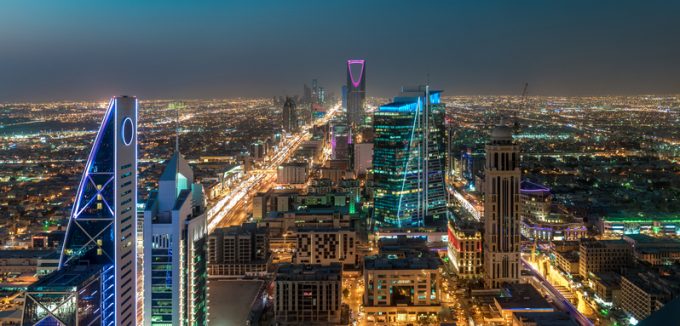DSV chief reticent on Schenker: the focus on growing market share
DSV focused on gains in market share, organic growth and making investors confident in its ...

Saudi Arabia has captured headlines with its multi-billion-dollar patronage of football, golf and boxing – which critics dismiss as sports-washing, designed to deflect attention from the country’s appalling record on human rights.
But what has often been overlooked is that the desert kingdom is also pumping an estimated $133bn into logistics infrastructure and freight handling capacity as it seeks to diversify its economy and increase non-oil GDP.
It’s aim is to become not only a regional, but a global logistics powerhouse, Dubai having had that field to itself for so long.
Large-scale projects are in the offing in the maritime sector to upgrade ports and terminals – and to develop new gateways and introduce new trade routes. The aim is to more than quadruple the country’s annual container throughput, to 40m teu, by 2030.
And the country’s rail network will be expanded considerably, linking Saudi’s Red Sea and Arabian Gulf ports, while there is a target to double air cargo capacity to at least 4.5m tonnes.
Riyadh Airport is to be transformed into a massive aviation hub, with six parallel runways and a ‘Special Integrated Logistics Zone’ covering some three million sq metres. A new national airline, Riyadh Air, is headquartered there.
Saudi Arabia has also unveiled a ‘Master Logistics Centres Plan’ to boost local, regional, and inter-continental connectivity for international trade networks and global supply chains. Approximately 40 logistics centres will be built, covering an area exceeding 100 million sq metres, around half that number presently exist, up from only two in 2020.
Find out why technology and demographics will impact global trade just as much China + 1 amid more divisive geopolitics, in this clip of Marc Levinson, author, historian and journalist, talking to The Loadstar Podcast.
“Saudi Arabia has the resources and ambition to become a major regional and global hub over the next decade – a conduit for trade between some of the fastest-growing markets in Asia and Africa, as well as serving the rest of the Middle East and parts of Europe”, said John Manners-Bell, CEO of research consultancy Transport Intelligence.
“Its large domestic and export market will give it an advantage over other hub ports in the region which focus largely of transhipments.”
Having last year opened offices in Dubai and Abu Dhabi, fast-growing Denmark-based Scan Global Logistics now has its sights set firmly on the Saudi Arabia market.
“It is undergoing a profound transformation, marked by remarkable and rapid progress. From both a social and economic perspective, this transition has been nothing short of astonishing, at least in my view,” MD UAE Ayman Kabbara told The Loadstar.
He said: “Saudi Arabia’s strategic access to the Red Sea and its proximity to Africa are set to be major advantages.”
Commenting on the disquiet being expressed by some of DSV’s investors, following the announcement of the Danish logistics giant’s $10bn Neom JV in Saudi Arabia, Mr Manners-Bell said: “It is obviously for the management and shareholders of DSV to make their own investment and operational decisions. But if they were to pull out of this contract, it would raise questions about doing business in many other parts of the world which have not embraced western values.
“For example, should they stay in China, given the ethical concerns over the treatment of the Uighur community? In the end, Saudi Arabia’s huge economic power will make the market impossible for logistics companies to ignore.”
Comment on this article